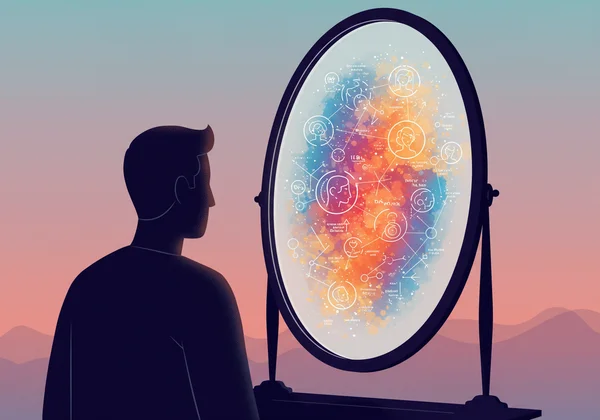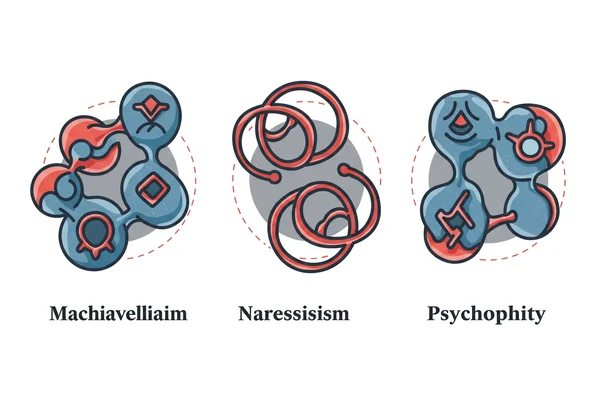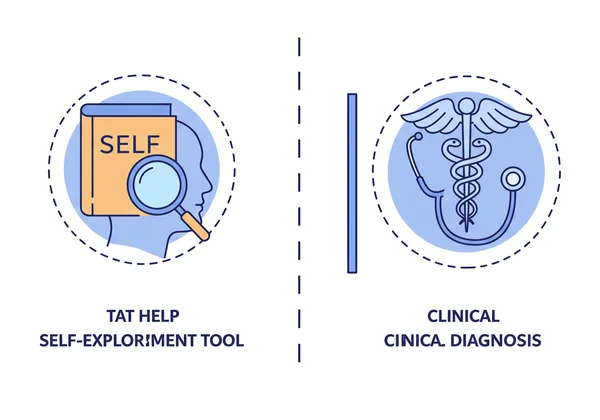Interpreting Your Dark Triad Test Scores for Growth
July 21, 2025 | By Julian Vance
So, you’ve taken a dark triad test and have your scores in hand. A mix of numbers representing Machiavellianism, Narcissism, and Psychopathy stares back at you. This moment is often filled with curiosity, and perhaps a bit of apprehension. You might be asking yourself, How do I know if I have dark triad traits? This is a powerful question, and understanding your results is the first step toward profound self-awareness and personal growth.
These scores are not a judgment; they are a mirror reflecting certain aspects of your personality. As a psychology enthusiast, I see these tools as maps that can help us navigate our inner worlds. They offer a framework to understand our tendencies, motivations, and the complex ways we interact with others. This guide is designed to help you interpret your results, not as a label, but as a launchpad for development. Ready to unlock your profile? You can always revisit your insights or take our free test to begin your journey.

Deciphering Your Individual Dark Triad Scores
Understanding the dark triad scores meaning is about looking at each component separately before seeing how they interact. Your report breaks down your profile into three core traits. It’s important to remember that these exist on a spectrum; everyone possesses these traits to some degree. It’s the intensity and combination that create a unique personality profile.
What Your Machiavellianism Score Reveals
A high score in Machiavellianism doesn't mean you're a villain from a historical play. It simply points to a pragmatic, and sometimes cynical, approach to life. Individuals with elevated Machiavellianism tend to be strategic thinkers, skilled at manipulating situations and people to achieve their goals. They often prioritize success and ambition, viewing social interactions as a series of moves in a larger game.
If your score is high, you might excel in competitive environments where strategic planning is key. Conversely, a lower score suggests you may operate with more transparency and a belief in the inherent goodness of others. Understanding this trait can help you recognize when your strategic mind is an asset and when it might be creating distance in your personal relationships.
Understanding Your Narcissism Tendencies
Narcissism in a psychological context is more nuanced than simple vanity. It relates to a person's sense of self-importance, a need for admiration, and a belief in one's own uniqueness. A higher score here might indicate strong self-confidence, leadership ambition, and a charismatic personality that can be very attractive and influential. Many leaders and performers exhibit these tendencies.
However, a very high score can also correlate with a sensitivity to criticism and a potential lack of empathy for others' feelings. A lower score often means you are more modest and group-oriented. Recognizing your level of narcissistic tendencies is crucial for balancing self-assurance with genuine connection to others. It helps you appreciate your own strengths without devaluing those around you.
Insights from Your Psychopathy Trait Level
The term "psychopathy" can sound alarming, but in a personality test, it primarily measures traits like impulsivity, thrill-seeking, and low empathy. A high score suggests a person who may be calm under pressure, willing to take risks, and less burdened by guilt or social expectations. These individuals can be decisive and unafraid to make tough choices, traits valuable in professions like surgery or special forces.
On the other hand, these same tendencies can lead to recklessness and difficulty forming deep emotional bonds. A lower score indicates a more cautious nature and a strong empathetic response to others. Understanding this part of your profile can offer insights into your risk tolerance and emotional processing style, helping you manage impulsivity or recognize your capacity for deep connection. To see your unique blend, you can discover your results on our platform.

Leveraging Your Dark Triad Assessment for Personal Growth
This dark triad assessment guide is more than just an explanation; it's a call to action. Your results are a valuable dataset about you. The most crucial step is transforming this information into a plan for personal growth dark triad traits can illuminate. Awareness is the key that unlocks the door to change and self-improvement.
Turning Self-Awareness into Actionable Steps
Once you understand your scores, you can start observing your behaviors in daily life. If you scored high on Machiavellianism, ask yourself: "Am I being strategic or manipulative in this situation?" If your narcissism score was elevated, you might reflect: "Am I listening to understand, or just to receive validation?" This practice of mindful self-reflection is where real growth begins.
For example, a person with high psychopathy traits who wants to build stronger relationships might consciously practice active listening or volunteer for a cause they care about to cultivate empathy. Someone with high Machiavellianism could set a goal to collaborate with complete transparency on a team project. These are small, actionable steps that build new habits.
Exploring Deeper Insights with AI-Powered Analysis
A basic score report gives you the "what." But what about the "why" and "how"? This is where modern technology can offer a revolutionary advantage. Our platform provides a unique, optional AI-powered analysis that transforms your scores into a hyper-personalized report. It doesn't just tell you your numbers; it interprets them within the context of your life.
This deep-dive report offers insights into your potential strengths and challenges, how your traits might manifest in specific scenarios (like at work or in relationships), and provides a customized action plan for growth. It moves beyond generic advice to give you a truly personal roadmap. If you're serious about self-discovery, unlocking this AI-powered analysis is the definitive next step.

Important Considerations When Interpreting Your Results
As you delve into your results, it's vital to maintain a healthy perspective. A personality test is a tool, not a verdict. As a psychology enthusiast, I must stress the importance of using this information responsibly and with the right mindset to ensure it's a constructive experience.
The Dark Triad Test is Not a Clinical Diagnosis
This is the most critical point to remember. Our dark triad test is an informational and educational tool, based on established psychological research, designed for self-exploration. It is not, and should never be considered, a clinical diagnosis. High scores in these traits do not mean you have Narcissistic Personality Disorder (NPD) or Antisocial Personality Disorder (ASPD).
Those are serious clinical conditions that can only be diagnosed by a qualified mental health professional after a comprehensive evaluation. If you have serious concerns about your mental health or the behavior of someone you know, please seek professional help. Our test is here to promote awareness, not to replace professional consultation.

Your Results as a Starting Point for Self-Reflection
View your test results as a snapshot in time, not a life sentence. Your personality is dynamic and can evolve. Use your scores as a starting point for asking deeper questions and engaging in meaningful self-reflection. What parts of your results resonate with you? Which parts surprise you?
Perhaps your score prompts a conversation with a trusted friend or a decision to read more about a specific trait. The goal is not to judge yourself but to understand yourself more completely. This understanding is the foundation upon which you can build a more intentional and fulfilling life. Start your journey with this powerful first step.
Moving Forward: Your Path to Deeper Self-Understanding
Interpreting your Dark Triad test scores is a journey into the complex, fascinating, and often misunderstood corners of human personality. It’s an act of courage to look at these traits within yourself, not as flaws, but as components of a whole person. By understanding your tendencies towards Machiavellianism, Narcissism, and Psychopathy, you gain the power to harness your strengths and manage your challenges.
Remember, this knowledge is a tool for empowerment. It allows you to navigate your personal and professional life with greater awareness and intention. Whether you use the insights to become a more effective leader, a more empathetic partner, or simply a more self-aware individual, the journey starts with understanding.
Are you ready to take the next step? Visit our homepage to take the free dark triad test or unlock your personalized AI-driven report for a deeper dive into your unique personality profile. Share your thoughts or questions in the comments below!
Frequently Asked Questions About Dark Triad Test Results
How do I know if I have dark triad traits?
The most straightforward way is to take a scientifically-based assessment like the one we offer. The dark triad personality test will give you scores on the three key traits: Machiavellianism, Narcissism, and Psychopathy. Reflecting on these scores and seeing how they align with your past behaviors and thoughts can confirm the presence and strength of these tendencies. To get started, you can explore the test on our site.
Can dark triad traits be changed or managed?
Absolutely. While core personality is relatively stable, behaviors and mindsets can be changed. Awareness is the first step. With conscious effort, therapy, or coaching, individuals can learn to manage their tendencies—for example, by developing empathy, practicing honest communication, or learning to control impulsive behavior. Our AI report offers actionable steps to begin this process.
What careers or professions might show dark triad traits?
Certain professions may attract or reward individuals with Dark Triad traits. High-stakes environments often favor these personalities. For example, the strategic thinking of Machiavellianism is useful in law and politics. The confidence of narcissism is common in CEOs and surgeons. The calmness under pressure associated with psychopathy can be an asset in military or emergency services. However, these traits are not a prerequisite for success in any field. If you're curious about your own profile, get your report.
Disclaimer: This article is for informational and educational purposes only. It is not a substitute for professional psychological advice, diagnosis, or treatment. Always seek the advice of a qualified mental health provider with any questions you may have regarding a medical condition.